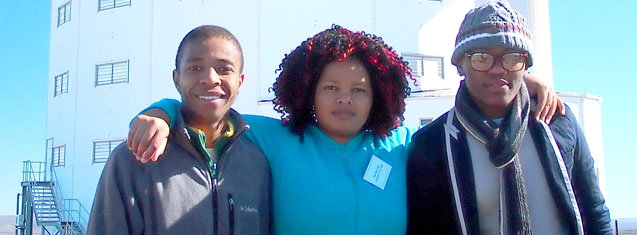Latest News Archive
Please select Category, Year, and then Month to display items
17 August 2020
|
Story Nitha Ramnath
|
Photo istock

Within the next five years, 60% of the world’s population will be living in urban areas. Urban living comes with large-scale economic advantages and society benefits from economies of scale. But, COVID-19 is challenging urban living. We have introduced the term ‘social distancing’ and some policy analysts have even argued for the de-densification of cities.
Join us for a discussion where our panellists will analyse this perceived conflict.
Date: Thursday, 27 August 2020
Time: 14:00 to 15:30 (South African Standard Time – GMT +2)
Please RSVP to Elelwani Mmbadi at
mmbadiE@ufs.ac.za no later than 25 August, upon which you will receive a Skype for Business meeting invite and link to access the webinar.
Speakers:
Prof Ivan Turok
Dr Geci Karuri-Sebina
Mr Thiresh Govender
Moderator:
Lochner Marais
Students attend prestigious National Astrophysics and Space Science Programme
2014-08-22

From the left are: Thokozane Ngcongwane with Mbali Xaba and Thabo Kumalo (both third-year Physics and Chemistry students).
Three students from our Qwaqwa Campus – Thokozane Ngcongwane, Mbali Xaba and Thabo Kumalo – were recently selected to attend the prestigious National Astrophysics and Space Science Programme (NASSP). The programme – in partnership with the National Research Foundation (NRF) – ran for two weeks at the South African Astronomical Observatory (SAAO) in Cape Town.
The project targets students from formerly disadvantaged institutions of higher learning, where astronomy and astrophysics are not offered.
Students are invited to apply for the programme, with emphasis placed on students majoring in mathematics and physics. Students from other fields are also invited to apply, though. The programme allows for the development of black astronomers and astrophysicists, which are in demand in the ever-growing environment of astronomy in South Africa.
“Topics such as gravitational lenses, black holes, stellar evolution and the mysteries of cosmology were presented and students were invited to engage with the speakers during and after the presentations,” said Ngcongwane, a third-year Zoology and Entomology student.
The programme challenged them to work on basic astrophysical concepts in groups while individual written assignments were part of the learning process as well.
“Given the lack of information about the complexities of astronomy the students had, this was the most ideal time to learn about all matters astronomy and astrophysics as lectures offered a lot to young and excited minds,” Ngcongwane said.